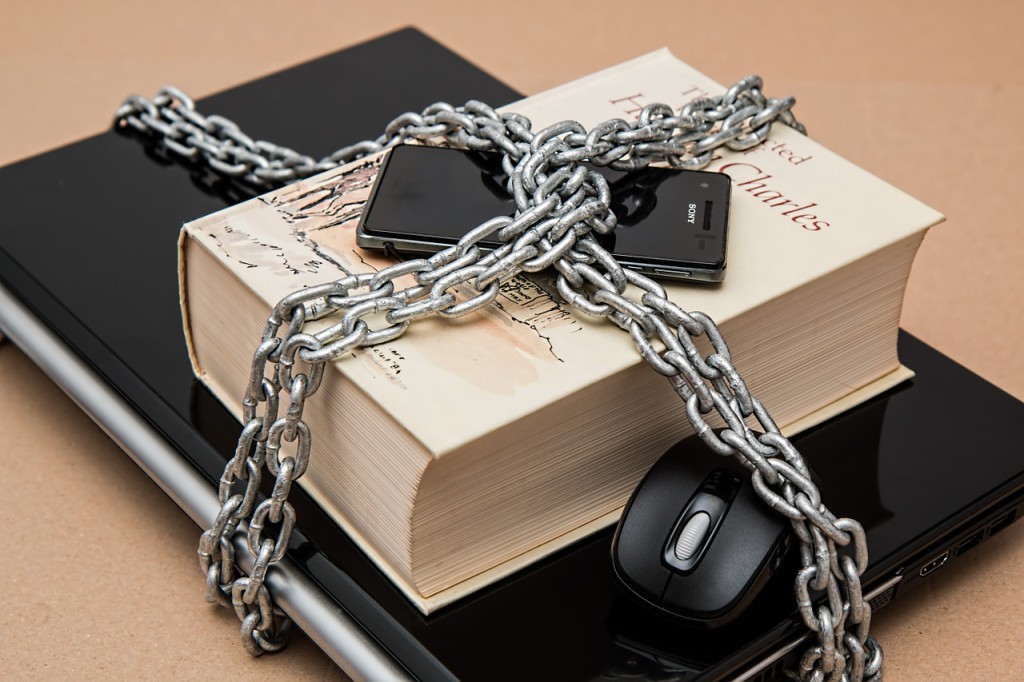Written by: Claire Bernardin, Land Rights intern at Eco Ruralis; additional content via Corporate Europe Observatory.
“Soon, journalists and their sources could be sued by companies if they reveal what these companies want to keep secret. Unless we react to defend the investigative work of journalists and, by extension, the right for citizen to be informed.
Under the alibi of the fight against industrial espionage, the European Parliament is preparing a new massive weapon against journalism,”trade secrets”, whose definition allows not less then an unprecedented censorship in Europe.”

That’s according to the petition launched by Elise Lucet, a French investigative journalist, which is approaching half a million signatures.
It all started on November 28th 2013 when the Commission submitted a draft proposal aiming to homogenise the definition of a trade secret throughout the EU. This would fight economic and industrial espionage by protecting companies against the unlawful acquisition, use and disclosure of the aforementioned trade secrets, thus enhancing competitiveness in the Union.
However, voices arose among civil society to denounce the dangerous vagueness of the bill.
Firstly, definitions are considered so broad that they would enable almost anything within a company to be regarded as such and thus remain unpublished for the sake of secrecy. Indeed, Article 2.1 describes a “trade secret” as information deliberately kept secret and that “has commercial value because of this secrecy”.
Secondly, Article 3.2 declares the acquisition of trade secrets “unlawful whenever carried out by unauthorised access to [..] or appropriation of any documents […] containing the trade secret […] [or by] any other conduct […] considered contrary to honest commercial practices.” Also stated unlawful is the use or disclosure of information thus acquired, including through the breach of a confidentiality agreement. This endangers investigation journalism and whistleblowing via the possible indemnification of the prejudice suffered by the companies or even prison terms. Freedom of information would then become subordinate to the right of companies to preserve their secrets.
“Safeguards” disable this illegality in Article 4.2 if the deed is carried out notably under “legitimate use of the right to freedom of expression and information” or “for the purpose of revealing a misconduct, wrongdoing or illegal activity, provided that the alleged acquisition, use or disclosure of the trade secret was necessary for such revelation and that the respondent acted in the public interest”.
Nevertheless, these conditions are once again too vague – “wrongdoing”, “legitimate use” or “public interest”? These conditions are therefore too weak to ensure that citizens are to be protected against possible prosecution.
This may lead to self-censorship: being faced with a reverse burden of proof would make people less likely to take the chance to speak up. Scandals such as LuxLeaks and SwissLeaks, which lifted the veil on secret governmental tax deals with international corporations, may never have been exposed. Moreover, no mention of protection of sources is made. Companies could then sue absolutely anyone thought to be involved in “threatening” those so-called secrets.
If approved by the Council, the 28 Member States would have to define trade secrets according to the guidelines given by the directive and to come up with sanctions for the misuse of confidential information.
Mrs. Constance le Grip, the JURI rapporteur, made some small modifications to the text, ostensibly to protect whistleblowers and journalists, but these have also turned out to be too vague to be of much use.
As Corporate Europe Observatory (CEO) pointed out in June
The core problem of the Commission (and Member State) proposal: the tautological and vague definition adopted for “trade secrets” copy-pasted from the 1994 TRIPS agreement, remains untouched.
The second core problem, the decision by the Commission to frame the legal protection of trade secrets in intellectual property legislation references rather than harmonising the dominant model in EU Member States, unfair competition, has not been touched.
For journalists and whistleblowers, the crucial article 4 (exceptions) states that they can only “reveal” a “misconduct, wrongdoing, fraud or illegal activity” “provided” that they “acted in the public interest”. Which can only be determined by a judge, and therefore does not protect them against court cases initiated for intimidation and harassment purposes, one of the main threats they face.
Finally, this is only the European Parliament’s Legal Affairs Committee’s first position.
None of this is enough to protect journalists and whistleblowers, hence a still growing number of signatures on the petition. Besides, researchers and EU citizens need access to data of public interest. Companies within the pharmaceutical, food and chemical industries openly welcome the directive as, despite what the Commission claims, they could refuse more easily to release information about hazardous components on the pretext that they are trade secrets. This would either prevent civil society to conduct independent toxicological analyses or even facilitate the dumping of harmful by-products into the environment.
Another related huge issue, as highlighted in the #alltrials phenomenon, is the fact that there is no compulsion for corporations to publish research they commission, if they, quite simply, don’t like the results. This means that the public, and indeed the regulators, have impartial information upon which to make decisions.
As far as NGOs are concerned, activism and lobbyism may be as threatened as journalism. For instance, Eco Ruralis, a small Romanian association, notably works on land grabbing and recently launched a map reporting the deals happening in Romania. The disclosure of such information may be considered unlawful under this new directive. Even without leading to sanctions, the mere beginning of a prosecution could be ruinous for such small organisations.
These are just two reasons why everyone ought to spread the word about this threat and take action against it, so that we may all keep working properly.
After all, as George Orwell finely defined: “Journalism is printing what someone else does not want printed: everything else is public relations.”
Timeline (via CEO)
- The European Parliament’s Legal Affairs Committee voted on a report on the Commission’s proposal for a directive protecting so-called “trade secrets” in June, including amendments.
- Plenary vote, pencilled in for late November 2015.
- Since a directive needs to be transposed in national law and that Member States have reserved themselves the right to introduce stricter rules, including by introducing criminal penalties as the French government tried to do early January 2015, there will be many more opportunities for corporate lobby groups to water down or reverse the few meagre clarifications and improvements introduced by MEPs today.
More
Full CEO text: First key MEP vote on EU Trade Secrets Directive – improved language, but problem solved?





